speakers
Professor Louise Amoore - Geography, Durham
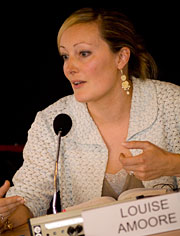 Louise Amoore researches and teaches in the areas of global geopolitics, security, and political theory. She has particular interests in how contemporary forms of data, analytics and risk management are changing the techniques of border control and security. Louise is currently ESRC Global Uncertainties leadership fellow (2012-2015). Her fellowship project 'Securing Against Future Events' (SaFE): Preemption, Protocols and Publics' examines how inferred futures become the basis for new forms of security risk calculus.
Louise Amoore researches and teaches in the areas of global geopolitics, security, and political theory. She has particular interests in how contemporary forms of data, analytics and risk management are changing the techniques of border control and security. Louise is currently ESRC Global Uncertainties leadership fellow (2012-2015). Her fellowship project 'Securing Against Future Events' (SaFE): Preemption, Protocols and Publics' examines how inferred futures become the basis for new forms of security risk calculus.
Louise's most recent book, The Politics of Possibility: Risk and Security Beyond Probability (2013) is published with Duke University Press. The book maps out the politics of possibility that has come to characterize contemporary life, tracing its genesis into the diverse worlds of risk consulting, computer science, commercial logistics, and data mining and visualization.
Dr. James Ash - School of Arts and Cultures, Newcastle

James Ash is a geographer and lecturer in Media and Cultural Studies at Newcastle University. His research interests focus on the cultures, economies and politics of digital interfaces. He is primary investigator on an ESRC funded project (2016-2018) examining digital interfaces and debt. He is author of The Interface Envelope: Gaming, Technology, Power (Bloomsbury, 2015) and has published a range of articles on interfaces, videogames, affective design and technology in journals such as Theory, Culture & Society, Environment and Planning D: Society and Space and Body & Society. More information about his research is available at his website: here
Professor David Berry - Centre for Material Digital Culture, Sussex

David M. Berry is Professor of Digital Humanities in the School of Media, Film and Music at the University of Sussex. He writes widely on computation and the digital and is the author of Critical Theory and the Digital, The Philosophy of Software: Code and Mediation in the Digital Age, Copy, Rip, Burn: The Politics of Copyleft and Open Source, the editor of Understanding Digital Humanities and co-editor of Postdigital Aesthetics: Art, Computation and Design (with Michael Dieter). His forthcoming book in 2016 is Digital Humanities (with Anders Fagerjord)
Professor Caroline Bassett - Director, Sussex Humanities Lab
 Caroline Bassett is Professor of Media and Communications at the School of Media, Film and Music at the University of Sussex, and Director of the Sussex Humanities Lab. She is currently a visiting Helsingin Sanomat Foundation Fellow with the Helsinki Collegium for Advanced Studies. Her research and teaching critically explores the intersection of technology and cultural politics, forms, and practices. She has published widely on digital culture, sense perception and the digital, hostility to computing, and the politics of gender and technology. Recent work explores cultural studies and the digital humanities, anti-computing, and data politics.
Caroline Bassett is Professor of Media and Communications at the School of Media, Film and Music at the University of Sussex, and Director of the Sussex Humanities Lab. She is currently a visiting Helsingin Sanomat Foundation Fellow with the Helsinki Collegium for Advanced Studies. Her research and teaching critically explores the intersection of technology and cultural politics, forms, and practices. She has published widely on digital culture, sense perception and the digital, hostility to computing, and the politics of gender and technology. Recent work explores cultural studies and the digital humanities, anti-computing, and data politics.
Dr. Will Davies - PERC, Goldsmiths College
 Will Davies is a Senior Lecturer in Politics at Goldsmiths, where he is Co-Director of the Political Economy Research Centre (PERC). He is author of The Happiness Industry: How the government and big business sold us wellbeing (Verso, 2015) and The Limits of Neoliberalism: Authority, Sovereignty and the Logic of Competition (Sage, 2014). His blog is at www.potlatch.org.uk.
Will Davies is a Senior Lecturer in Politics at Goldsmiths, where he is Co-Director of the Political Economy Research Centre (PERC). He is author of The Happiness Industry: How the government and big business sold us wellbeing (Verso, 2015) and The Limits of Neoliberalism: Authority, Sovereignty and the Logic of Competition (Sage, 2014). His blog is at www.potlatch.org.uk.
Dr. Michael Dieter - CIM, Warwick
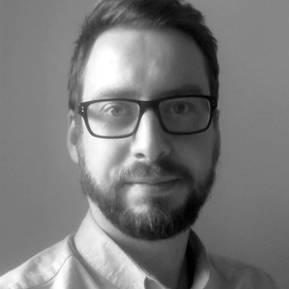 Michael Dieter joined the Centre for Interdisciplinary Methodologies (CIM) at Warwick in October 2014 from the University of Amsterdam and the Centre for Digital Cultures, Leuphana in Germany. He holds a PhD in Culture and Communication from the University of Melbourne on media arts practice and theory. His current research focuses on publishing practices after digitisation, cultural techniques in interface and user-experience design, and genealogies of media at the intersection of aesthetic and political thought.
Michael Dieter joined the Centre for Interdisciplinary Methodologies (CIM) at Warwick in October 2014 from the University of Amsterdam and the Centre for Digital Cultures, Leuphana in Germany. He holds a PhD in Culture and Communication from the University of Melbourne on media arts practice and theory. His current research focuses on publishing practices after digitisation, cultural techniques in interface and user-experience design, and genealogies of media at the intersection of aesthetic and political thought.
Professor Steve Fuller - Sociology, Warwick
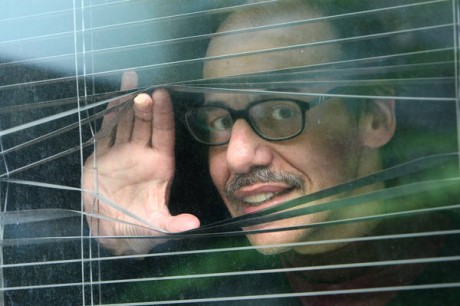 Steve Fuller is Auguste Comte Professor of Social Epistemology in the Department of Sociology at the University of Warwick, UK. Originally trained in history and philosophy of science, Fuller is best known for his foundational work in the field of ‘social epistemology’, the name of both a quarterly journal that he founded in 1987 and the first of his more than twenty books. He has recently completed a trilogy relating to the idea of a ‘post-’ or ‘trans-‘ human future, all published with Palgrave Macmillan. His latest book is Knowledge: The Philosophical Quest in History (Routledge 2015). His next book is entitled Media and the Power of Knowledge, due from Bloomsbury in 2016.
Steve Fuller is Auguste Comte Professor of Social Epistemology in the Department of Sociology at the University of Warwick, UK. Originally trained in history and philosophy of science, Fuller is best known for his foundational work in the field of ‘social epistemology’, the name of both a quarterly journal that he founded in 1987 and the first of his more than twenty books. He has recently completed a trilogy relating to the idea of a ‘post-’ or ‘trans-‘ human future, all published with Palgrave Macmillan. His latest book is Knowledge: The Philosophical Quest in History (Routledge 2015). His next book is entitled Media and the Power of Knowledge, due from Bloomsbury in 2016.
Dr. Jennifer Gabrys - Sociology, Goldsmiths College
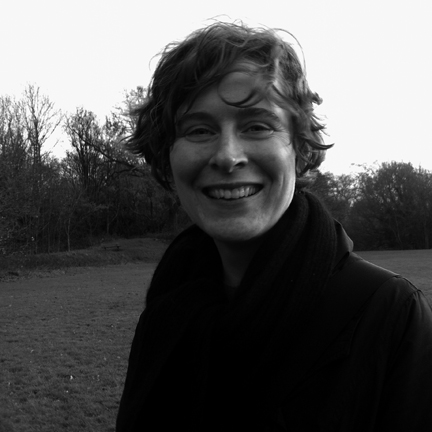 Jennifer Gabrys is Reader in the Department of Sociology at Goldsmiths, University of London, and Principal Investigator on the ERC-funded project, Citizen Sense. She is author of a study on electronic waste, Digital Rubbish: A Natural History of Electronics (University of Michigan, 2011); and a forthcoming study on environmental sensing, Program Earth: Environmental Sensing Technology and the Making of a Computational Planet (University of Minnesota Press, 2016). Her work can be found at citizensense.net and jennifergabrys.net.
Jennifer Gabrys is Reader in the Department of Sociology at Goldsmiths, University of London, and Principal Investigator on the ERC-funded project, Citizen Sense. She is author of a study on electronic waste, Digital Rubbish: A Natural History of Electronics (University of Michigan, 2011); and a forthcoming study on environmental sensing, Program Earth: Environmental Sensing Technology and the Making of a Computational Planet (University of Minnesota Press, 2016). Her work can be found at citizensense.net and jennifergabrys.net.
Dr. Satinder Gill, Centre for Music and Science, Cambridge
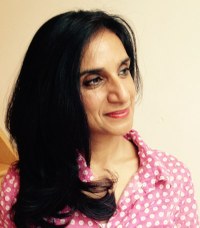 Satinder Gill is a Research scientist based at the CMS (Centre for Music and Science), Faculty of Music, University of Cambridge. She received her PhD in Experimental Psychology at the University of Cambridge in 1995, after which followed post doctoral positions at NTT Basic Research Labs, Japan, CKIR (Centre for Knowledge and Innovation Research) Helsinki, Finland, and Stanford University (USA), a Senior Research Fellowship at Middlesex University, London, Visiting Scholarship with the Computing Lab at Cambridge University, and her current affiliation with the CMS. He research investigates the processes underlying knowledge transfer in human interaction, the dynamics of technologically-mediated interaction, and the ethics and aesthetics of engagement. She has recently published a book with Springer on Tacit Engagement: Beyond Interaction (2015), and is Associate Editor with AI & Society: Journal of Knowledge, Culture, and Communication.
Satinder Gill is a Research scientist based at the CMS (Centre for Music and Science), Faculty of Music, University of Cambridge. She received her PhD in Experimental Psychology at the University of Cambridge in 1995, after which followed post doctoral positions at NTT Basic Research Labs, Japan, CKIR (Centre for Knowledge and Innovation Research) Helsinki, Finland, and Stanford University (USA), a Senior Research Fellowship at Middlesex University, London, Visiting Scholarship with the Computing Lab at Cambridge University, and her current affiliation with the CMS. He research investigates the processes underlying knowledge transfer in human interaction, the dynamics of technologically-mediated interaction, and the ethics and aesthetics of engagement. She has recently published a book with Springer on Tacit Engagement: Beyond Interaction (2015), and is Associate Editor with AI & Society: Journal of Knowledge, Culture, and Communication.
Dr. Tony Sampson - School of Arts and Digital Industries, UEL
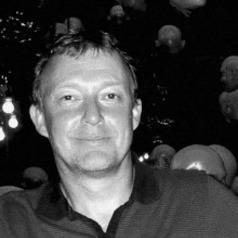 Dr. Tony D. Sampson is Reader in Digital Cultures. His publications include The Spam Book, coedited with Jussi Parikka (Hampton Press, 2009), Virality: Contagion Theory in the Age of Networks (University of Minnesota Press, 2012) and The Assemblage Brain: Sense Making in Times of Neurocapitalism (University of Minnesota Press, forthcoming 2016). This latest book develops a radical image of thought which traces the dystopic trajectory of neurocapitalism as it pervades digital labour, big pharma and marketing. Tony is a co-founder of Club Critical Theory in Southend and Director of the EmotionUX Lab at UEL. He occasionally blogs on Virality
Dr. Tony D. Sampson is Reader in Digital Cultures. His publications include The Spam Book, coedited with Jussi Parikka (Hampton Press, 2009), Virality: Contagion Theory in the Age of Networks (University of Minnesota Press, 2012) and The Assemblage Brain: Sense Making in Times of Neurocapitalism (University of Minnesota Press, forthcoming 2016). This latest book develops a radical image of thought which traces the dystopic trajectory of neurocapitalism as it pervades digital labour, big pharma and marketing. Tony is a co-founder of Club Critical Theory in Southend and Director of the EmotionUX Lab at UEL. He occasionally blogs on Virality
Dr. Natasha Schüll - Media, Culture and Communication, NYU
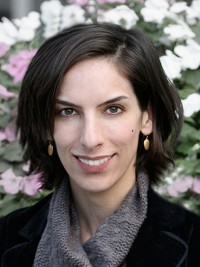 Natasha Dow Schüll's first book, ADDICTION BY DESIGN: Machine Gambling in Las Vegas (Princeton University Press 2012), draws on extended research among compulsive gamblers and the designers of the slot machines they play to explore the relationship between technology design and the experience of addiction. Her next book, KEEPING TRACK: Sensor Technology, Self-Regulation, and the Data-Driven Life (Farrar, Straus, and Giroux, forthcoming 2017), concerns the rise of digital self-tracking technologies and the new modes of introspection and self-governance they engender. Her documentary film, BUFFET: All You Can Eat Las Vegas, has screened multiple times on PBS and appeared in numerous film festivals.
Natasha Dow Schüll's first book, ADDICTION BY DESIGN: Machine Gambling in Las Vegas (Princeton University Press 2012), draws on extended research among compulsive gamblers and the designers of the slot machines they play to explore the relationship between technology design and the experience of addiction. Her next book, KEEPING TRACK: Sensor Technology, Self-Regulation, and the Data-Driven Life (Farrar, Straus, and Giroux, forthcoming 2017), concerns the rise of digital self-tracking technologies and the new modes of introspection and self-governance they engender. Her documentary film, BUFFET: All You Can Eat Las Vegas, has screened multiple times on PBS and appeared in numerous film festivals.
Dr. Nick Srnicek
 Nick Srnicek is the author of Inventing the Future: Postcapitalist and a World Without Work (Verso, 2015 with Alex Williams), author of Postcapitalist Technologies (Polity, 2016), and editor of The Speculative Turn: Continental Materialism and Realism (2011, Re.press with Levi Bryant and Graham Harman).
Nick Srnicek is the author of Inventing the Future: Postcapitalist and a World Without Work (Verso, 2015 with Alex Williams), author of Postcapitalist Technologies (Polity, 2016), and editor of The Speculative Turn: Continental Materialism and Realism (2011, Re.press with Levi Bryant and Graham Harman).
Professor Michael Wheeler - Philosophy, Stirling
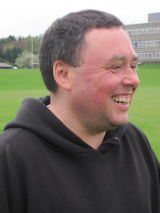 Michael Wheeler is Professor of Philosophy at the University of Stirling. His primary research interests are in philosophy of science (especially cognitive science, psychology, biology and artificial intelligence) and philosophy of mind. His book, Reconstructing the Cognitive World: the Next Step, was published by MIT Press in 2005. His current research focusses mainly on our understanding of, and the arguments for and against, so-called 4E (embodied, embedded, extended, enactive) cognition.
Michael Wheeler is Professor of Philosophy at the University of Stirling. His primary research interests are in philosophy of science (especially cognitive science, psychology, biology and artificial intelligence) and philosophy of mind. His book, Reconstructing the Cognitive World: the Next Step, was published by MIT Press in 2005. His current research focusses mainly on our understanding of, and the arguments for and against, so-called 4E (embodied, embedded, extended, enactive) cognition.
